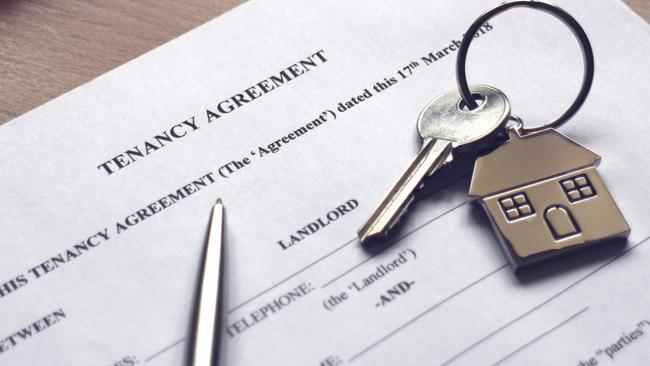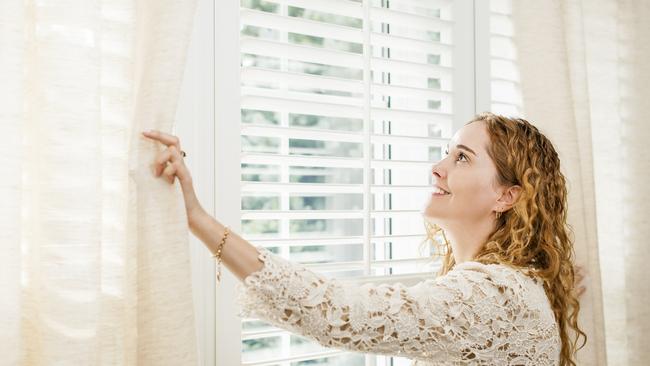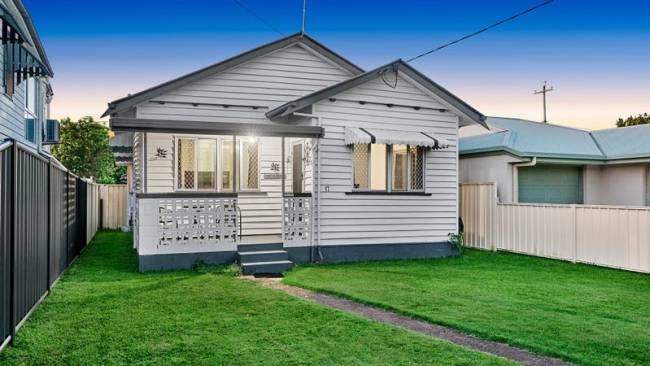Rental reforms Victoria: Complete guide ahead of March 29 introduction
More than 130 rental reforms will soon become official in Victoria. Here’s everything you need to know.

Property
Don't miss out on the headlines from Property. Followed categories will be added to My News.
More than 130 rental reforms will have come into effect in Victoria in seven weeks’ time, in a move advocates say will ensure tenants are no longer treated “as second-class citizens”.
Minimum standards will be mandated for the state’s rental homes from March 29 — the day after the COVID-driven bans on evictions and rent hikes end.
And renters will be able to make minor modifications to their homes without permission from their landlords, who are being rebranded as “rental providers” under the new laws.
RELATED: Full lists of minimum standards, minor modifications revealed
Rental minimum standards: What existing tenants need to know
Australian tenants expose defects in homes as Victoria awaits minimum standards

But tenants will be required to pay for any modifications, unless they’re classed as a repair or needed to meet a safety standard. And they’ll also have to reverse them when they vacate, or cover the cost of doing so, unless they strike an agreement with their landlord.
“No specified reason” evictions will be banned, with rental providers required to offer a valid reason like they’re selling or moving in.
Tenants will be able to apply directly to the Residential Tenancies Bond Authority to claim all or part of their bond.
Rental providers will need to organise gas and electrical safety checks of properties every two years, plus yearly inspections of smoke alarms.
And the definition of “urgent repairs” will be expanded to include the breakdown of airconditioning, smoke alarms and pool fences, as well pest infestations or mould caused by the building structure.

These are just some of the 132 reforms that passed Victorian parliament in 2018.
Some already apply, with landlords notably barred from “unreasonably” preventing tenants from keeping pets and raising rents more than once a year. The government had initially intended for all reforms to come into effect last July, but the pandemic delayed this.
Tenants Victoria chief executive Jennifer Beveridge said the changes created a “much-needed safety net to ensure all rental properties and renters’ experiences meet a fair standard”.
She said two million Victorians lived in rentals. And the government’s Renting in Victoria Snapshot last year showed families accounted for 40 per cent of the state’s 620,000 rental households, reflecting a need for modernised standards.
“We shouldn’t be treating renters as second-class citizens,” she said.
“These new reforms offer significant protections. (But) the reality is, they also won’t require huge changes for existing providers of quality, safe and secure rentals.”

Ms Beveridge highlighted a reform renaming landlords as rental providers and tenants as renters in the Residential Tenancies Act as “an important symbolic shift” she hoped would “help reposition the power imbalance” between the parties.
“A rental provider is in the business of providing housing for people … rather than just parking their money in bricks and mortar, that gets us closer to a situation where they are able to provide quality services for others,” she said.
Philip Webb chief executive Anthony Webb — whose agency manages about 6000 rental properties across Melbourne — agreed the reforms would make homes “safer and better”, and clarify grey areas that had been “bugbears for tenants”.
But he said the March 29 deadline was “overwhelming” some landlords and property managers, and urged the government to step up its efforts to educate people on the changes.
Tenants especially needed to be aware they would still need to ask permission to make certain modifications, including painting, planting a vegetable or herb garden, and installing flyscreens. Rental providers just couldn’t “unreasonably refuse” them.

They would also need to engage a “suitably qualified person” to make changes like installing a security system, and allow access to professionals carrying out checks for gas, electricity and smoke-detector safety.
Landlords needed to be aware these safety requirements would come at a cost.
“They will also need to make sure their properties have deadlocks and latches on all windows,” he said.
“The amount (they will need to reimburse tenants) on urgent repairs has increased from $1800 to $2500, and they can only ask for a four-week bond (from renters paying) up to $900.”
Mr Webb said as a result, having landlord insurance would be “more crucial than ever”.
“Landlords have to make sure they’re working with a property manager who is across the changes,” he said.
Consumer Affairs Minister Melissa Horne said the reforms were designed to “protect vulnerable tenants and turn rental properties from a house into a real home”.
Real Estate Institute of Victoria chief executive Gil King has urged the government to show “leniency” towards non-compliant landlords in the first few months under the heavily amended Residential Tenancies Act.
He added the REIV would be applying for government funding to boost its resources to educate and train landlords and property managers.
MORE: Melbourne region’s ‘completely bonkers’ price growth
Melbourne home values rise again as buyers play ‘catch up’
High-rise construction crews could soon be building houses amid exodus from Melbourne
Chance to make a rental a home

Samara Delmenico doesn’t expect to be able to afford to buy a house any time soon. So gaining “a bit more power” as a tenant has been reassuring for the 25-year-old.
The paralegal — who shares an Alphington townhouse with Alice Mika and Olivia Feutrill — sees Victoria’s rental reforms as long-overdue changes that will prevent people like herself from having to live in “rundown shacks”.
Ms Delmenico said the minimum standards measure was of particular comfort, following her experience living in a house “where the oven and the heater didn’t work” during her uni days.
“Absolutely no one wanted to touch four university students with limited incomes. So we were really backed into a corner with the houses we could apply for,” she said.
“We did bring up (the oven and heater) with the landlord, but he would say they were working, so there wasn’t much we could do.
“We didn’t have much bargaining power. But with the minimum standards, we would have been able to push him on that.”
Ms Delmenico — who co-hosts the In The Know podcast, which explains the legal system to young people — said the reforms would also allow tenants to “build a nice home”.
“I will be renting for years to come, so it’s reassuring to know I can … get a pet, hang photos and put in light-blocking curtains,” she said.
“This is a really positive step in the right direction for tenants.”
REFORM FAQs
Do tenants have to pay for the modifications they make to their rental properties?
Yes, unless the modifications are classed as a repair or needed to meet a safety standard.
See the full lists of modifications here
Do tenants have to reverse the modifications they make?
Yes, or they have to cover the cost of reversing them, unless they and their rental provider agree to keep them.
Will the minor modifications reform apply to all tenancies?
Yes. And it is understood the permitted modifications would overrule a conflicting rental agreement. For example, if a rental tenancy agreement stated, “no installation of picture hooks without landlord’s prior consent”, that would be overruled by new allowance for a renter to install picture hooks without consent if their rental is not heritage protected.
Will the minimum standards apply for all rental properties?
No, the minimum standards will only apply to tenancy agreements commencing after March 29. But once a current fixed-term agreement rolls over into a periodic (month-to-month) arrangement, or a new fixed-term lease is signed, the property will need to meet the standards. Existing tenants will have increased protections, with the definition of “urgent repairs” being expanded to include the breakdown of airconditioning or safety devices like a smoke alarm or pool fence, and any damage or fault that makes a home unsafe, such as a pest infestation or mould caused by the building structure.
See the full list of minimum standards here
What does a rental provider have to do if their tenant requests an “urgent repair”?
They must respond immediately. If there is no response, a renter can authorise an urgent repair to be made up to the value of $2500, which the rental provider must reimburse within seven days of receiving written notice.
Rental providers and agents will no longer be able to request inappropriate information in a rental application. What does that mean?
Inappropriate information includes whether the applicant has previously been in a dispute with another rental provider or has ever had a claim on their bond, or a credit or bank statement containing daily transactions
Should I get landlord insurance?
Philip Webb Real Estate’s Anthony Webb says having landlord insurance will be “more crucial than ever” when the reforms come into effect, as rental providers will only be able to ask for a four-week bond (as opposed to six) from renters paying up to $900 per week, when previously the cap was $350.
What are the penalties for rental providers who breach the Residential Tenancies Act?
The Director of Consumer Affairs will be able to make an application to the Magistrates Court for an order that a person pay a financial penalty into the Residential Tenancies Fund. The maximum fine depends on the breach, but may be up to $60,000 for an individual and $300,000 for a body corporate.
And rental providers found by VCAT to have committed an offence or breached the Residential Tenancies Act will have their name, rental property address, and nature of their offence listed on a register publicly available from the Consumer Affairs Victoria website.
See all the rental reforms here
Originally published as Rental reforms Victoria: Complete guide ahead of March 29 introduction



